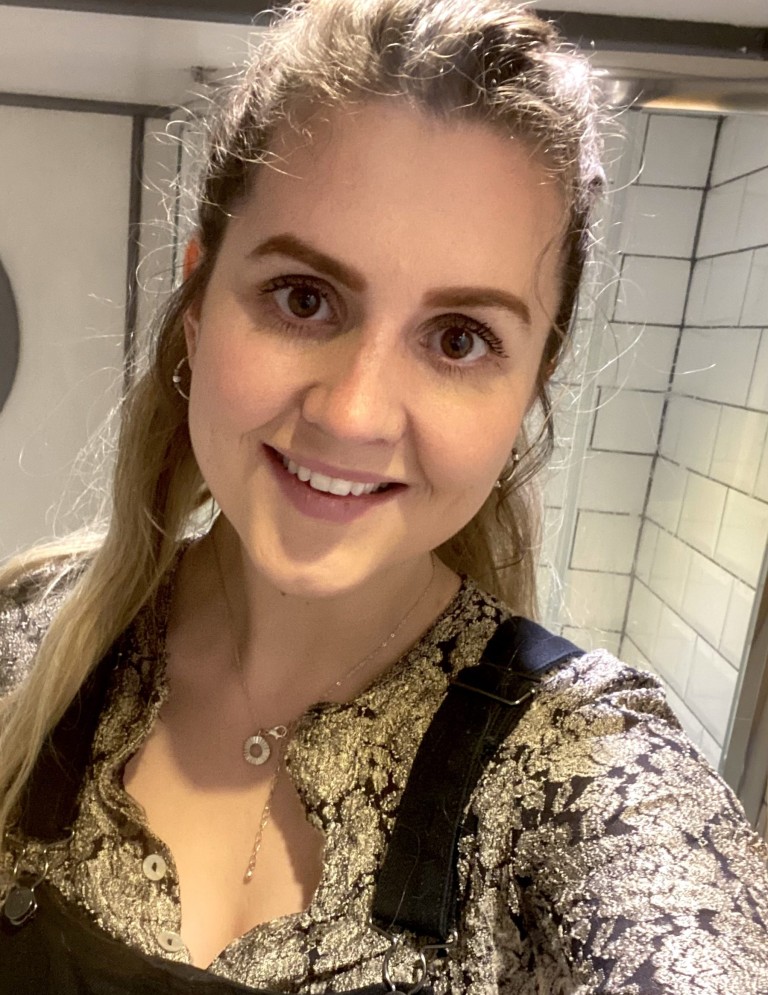Three years ago, I was halfway through reading a copy of Elvia Wilks’s Oval, a novel about a fictional feminist dystopia, when a crushingly familiar wave of depression descended upon me.
Trying to decipher the words printed on the page became impossible.
Knowing that these periods wiped me out for weeks, and unwilling to wait that long to find out the main character’s fate, I resorted to the unthinkable: the audio version.
As I listened, it hit me that these audiobooks could be the very thing that could help me navigate my bipolar disorder.
Bipolar expresses itself differently in everyone who suffers from the illness. For me, since being diagnosed six years ago, I’ve experienced debilitating periods of depression.
They are marked by suicidal waves and an inability to move, speak or eat; my plummeting energy levels will not permit the most basic of tasks.
At my lowest I will stop drinking water, because I know I lack the strength to make it to the toilet.
During these episodes I don’t feel anything.
My only cognitive experience is an urging voice in my head, which I have come to recognise as my own, persuading me that there is no reason to go on, and that I should end my life.
In the past, when these episodes occurred, I would knock myself out with sleeping pills.
I spent huge chunks of my year this way. Unconscious. Waiting for the pain to pass.
Then, when the episodes lifted, I started responding to the multitude of messages, emails and calls I’d missed. I always had an excuse, never wanting to be honest about my disorder and embarrassed about my inability to ‘get on with life.’
One of the worst aspects of my episodes was the shame that accompanied those days of lying in bed and achieving nothing, feeling I had to compensate by achieving double during the weeks I was not incapacitated.
This caused undue stress, which permeated the rest of my life.
I still experience these episodes. I always will. But a few years ago, everything changed.
I stumbled across a companion, a constant, a life raft, to support me through the dark days.
As cliché as it may sound: audiobooks have improved things dramatically.
When a friend suggested I might like the app Audible, I scoffed, declaring that ‘listening to audiobooks doesn’t count as reading!’
But then that episode happened, when I was reading Oval.
As soon as I began listening rather than trying to focus on the written page, I felt a calmness; unprecedented feelings of reassurance. Comfort.
My mind slowed and ceased racing through terrifying, suicidal thoughts. There was a stillness. A sense of peace.
In my episodes I can’t really bring myself to move. Listening to audiobooks, I do not have to.
When the suicidal voice in my mind is terrifyingly strong, I’ve found the calming stream of a narrator’s words can distract me.
When I’m at rock bottom, I feel no-one has suffered pain like me.
Yet, in the background, through my speaker, characters fight through discrimination, war, illness, heartbreak and death.
Flickers of perspective make their way through the sludge of my mind. Reminders of love. Hope. Humanity.
Audiobooks make me feel that I am not really alone.
When I was first diagnosed, I spent weeks in a psychiatric hospital.
I tried everything – drugs, CBT, wellbeing retreats.
Some of this certainly helped, but nothing cured me, and audiobooks have had more of an impact than anything else.
It’s clear that words are my way to help manage these instances of depression; I am fascinated by the transformative power of language.
Studying English at university, and working as a freelance journalist, I have always been obsessed with reading and writing.
I used to think that the written word was the only way to take in information, and assumed it would be beyond me during a crisis.
But now, instead of knocking myself out, I’m learning. With audiobooks playing, I am capable of staying conscious.
I have an Audible subscription, which includes three Audiobooks a month.
With my smartphone connected via Bluetooth to a speaker in my room, I will play them, often back-to-back, until major depressive episodes pass.
I began to wonder if audiobooks evoked soothing memories of being read to as a child.
My dad read to me prolifically.
He got through the entire Lord of the Rings trilogy by the time I was 10, and those positive memories are one of the reasons I believe audiobooks have been such an effective coping method for my depression.
During my most recent episode, I listened to Kay Redfield Jamison’s book An Unquiet Mind, a remarkable memoir that explores Jamison’s experience of living with bipolar disorder.
To date, I haven’t met anyone else who consciously uses audiobooks to self-medicate mental illness.
In 2023 I am running a series of free bipolar workshops and intend to discuss my personal experience of the benefits of audiobooks, and the positive impact they’ve had on me.
People are gravitating towards audio versions of content; be that podcasts, novels, memoirs, nonfiction or lectures.
In an era of endless scrolling and relentless computer screens, we are opting for alternative methods of acquiring information.
I hope that others can discover respite from mental or physical pain through this medium.
In a world of overstimulation, hyper-productivity, sensory bombardment and disturbed attention spans, I have found relief in the simple comfort of being transported by another person’s voice.
And that’s given me respite I never thought possible.
Anyone can contact Samaritans, free, 24/7, 365 days a year, on 116 123, email jo@samaritans.org or visit www.samaritans.org.
The Tech I Can’t Live Without
Welcome to The Tech I Can’t Live Without, Metro.co.uk‘s new weekly series where readers share the bit of kit that has proved indispensable for them.
From gadgets to software, apps to websites, you’ll read about all manner of innovations that people truly rely on.If you have a bit of tech you can’t live without, email Ross.McCafferty@metro.co.uk to take part in the series
MORE : Got any old audiobook CDs? This RSPCA branch wants to play them to the dogs
MORE : How to fully concentrate when listening to an audiobook
MORE : I thought nothing would ever help with my anxiety – until I discovered DJ-ing











